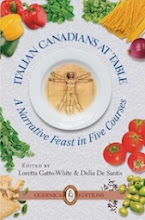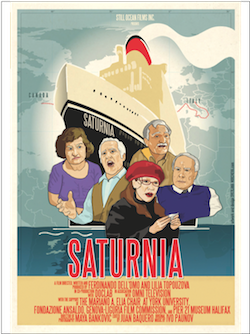... Manhattan was simply so improbable, so wonderful, so obviously full of promise - that you wanted to approach it for the rest of your life without ever quite arriving.
Rules of Civility by Amor Towles (Penguin Books, 2011) 335 pages
This novel is sexy and smart and literate and perfectly encapsulates my fantasies of a sort of Manhattan lifestyle in the 1930s - at least the kind of illusory dream of New York society that is well-heeled, sharply dressed and well-read.
It's 1966 ... an affluent middle-aged couple, Val and Katy, walk into a Manhattan art gallery and view a hitherto unseen Walker Evans photo exhibit from the late 1930s taken of unknown people riding the subway. Katy Kontent, the wife, spies two photographs of Theodore (Tinker) Grey a man she once knew almost thirty years before - one indicative of affluence, one of possible near destitution, only one year apart.
The story is told from Katy's perspective ... she thinks back to her first encounter with Tinker when she and her best friend Eve Ross met Tinker
at The Hotspot on New Year's eve. The year is 1938. He is from the "upper crust"; they are a couple of particularly smart, well read and well spoken office girls. They remind me a great deal of Howard Hawks heroines, ala Rosalind Russell in His Girl Friday.
Katy and Eve are
street smart and savvy. Tinker, oddly, seems formal and indistinct. Is
it just his WASPY background and natural sense of self-restraint or is
he hiding something?
As the novel proceeds you feel that you might be on the cusp of a madcap Manhattan adventure with the threesome sneaking into cinemas, downing martinis at the 21 Club, viewing the city from the upper reaches of the Trinity Church on Wall Street and both girls vying for his attention ... but the narrative takes a dramatic turn when the three are involved in a horrific car accident in Tinker's car.
Tinker cares for Eve, who suffered the worst injuries including devastating facial scars and a crippled leg, and helps to nurse her back to health in his luxurious Manhattan apartment.
There are hints that Tinker's persona is somewhat fabricated. Katy notes that his apartment seems put together by someone else (a feminine hand Katy deduces). The apartment is exquisite, overlooking Central Park with a maid's quarters where Tinker sleeps, deferring his master bedroom to Eve.
While caring for Eve one night, Katy finds Washington's Rules of Civility, which Towles helpfully includes at the end of the book in its entirety. The rules seem to epitomize Tinker, the perfect gentleman, perhaps too perfect ... and doubts linger in the reader's mind regarding his motivations. It's not that he's sinister but the arrangement with Eve seems odd. I would imagine that if an affluent young man of that time had injured an office girl in an accident, his family would send her home with a big cheque and a swift boot for her trouble, not ensconce her in his upscale apartment.
In the background is Tinker's wealthy godmother Anne Grandyn, an icy yet affable older woman, who periodically intrudes in his affairs adding an element of menace or tension to the scenario.
Throughout the novel, Katy keeps referring to her copy of Dickens' Great Expectations. It's a totem of sorts and refers subtly to the ever-changing fortunes of Tinker that so resemble Pip's, the beleaguered hero of that Victorian novel.
Eventually Eve and Tinker become lovers; Katy is oddly nonplussed or, perhaps, she pities Eve and is ready to concede Tinker's affections. She moves on ... rejecting a soul-crushingly boring promotion at her law firm where she types up depositions, quitting her job and then coming to work for an eccentric academic publisher who has taken a liking to her during a chance encounter. Then she is lured away for a position with a Condé Nast executive (natch this is New York) named Mason Tate.
As his assistant she is thrown in the path of very wealthy girls, who don't need the meager salaries they receive from publishing careers, and their brothers, like Dicky, who seems tempted by this outspoken, savvy girl who doesn't quite fit into their world and doesn't seem to want to either.
Dicky introduces her to the soon to be trust fund crowd ... a few more years, Katy says, and if they avoid being drowned or thrown in jail, they've got it made: membership in the
Racquet Club, opera boxes, lives of leisure. The class dynamic is interesting ... the rich invariably come off as shallow or slithery; Eve and Katy exude intelligence and spunk.
Katy re-encounters Wallace Wolcott, a friend of Tinker's, and their relationship takes an oddly aristocratic and courtly turn as he woos her by taking her shooting, having lunch at the club and touring the gun collection at the Metropolitan Museum. But Wallace has other plans, namely going to Spain to fight Franco. He also shares a bit of Tinker's history ... that is decidedly at odds with what Tinker had told Eve and Kate.
 |
Towles' elegant prose
flows and charms ... |
When Katy hears a rumour that Tinker has proposed to Eve on a borrowed yacht, she likely imagines that she is the only one whose life is at a standstill. Until ... the police locate a drunken, shoeless Eve in a back alley in a seedy part of town and jail her thinking her a prostitute. Eve's story of what transpired between her and Tinker is not a predictable one ... one that is at odds with the gold-digger image that she had been cultivating amongst Tinker's set.
Tinker is full of secrets, which Katy soon finds out. Our first instincts are right - something is afoot and it may not be pretty - he's not a villain but our instincts
are right, all is not what it seems.
Towles' elegant prose flows and charms, spiked with realistic dialogue between the women and striking descriptions such as this of the subway:
"It rattled into the station line like it was coming from another century." or Eve's engagement ring: "... it had a diamond you could skate on."
Tinker's life disproves F. Scott Fitzgerald's theory that there are no second acts for American lives ... you might say that, for modern Americans, the play never ends.












No comments:
Post a Comment